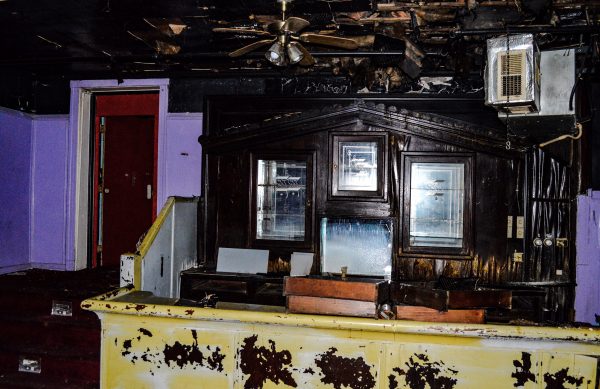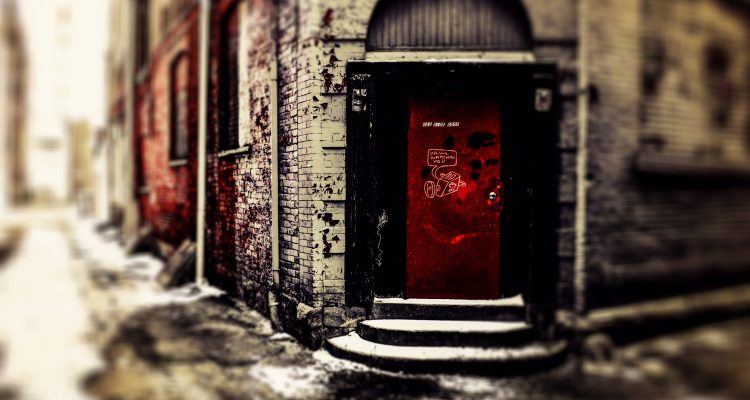WARNING: This article contains explicit language and subject matter that is not suitable for children. It is the equivalent of Rated R.
(Writer’s Note: This is the sixth in a series of stories that will concentrate on the organized-crime scene in and around Wheeling during the past century.)
Blow, Booze, Disco, and Loose Ladies
He carried a camera bag, but there was no camera.
He wore a suit and a tie because he was doing business, and he had a sales route to follow on a daily basis. There were never cold calls for him to make, though, because his job was simply to answer the demand, and he did so by waltzing into banks and businesses and law firms and restaurants to meet with owners and presidents and general managers.
“The Courier,” we’ll call him, would open up that camera bag, and the customer would select from its contents – cocaine, marijuana, and Quaaludes. At times the customer, he confirmed, would select all of the above.
It was, after all, the late 1970s.
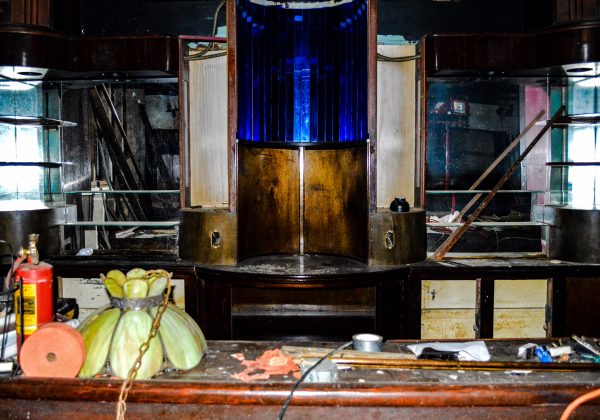
“It was a much different time than what I see these days. Back then the girls dressed up, and if they wanted to get a piece of ass, they weren’t afraid to go out and get a piece of ass,” Courier said. “That was the time of the ‘Me Generation.’ Whatever you wanted you pretty much went out and got it if you could, and no one else seemed to matter.
“Sex, drugs, booze, whatever, it didn’t matter in the late ’70s. We didn’t have drug tests or anything like that,” he said. “And then Disco happened, and that made everything explode. Disco changed a lot about everyone’s attitude. People stayed out all night back then going from bar to bar before going to Benwood for the late-night partying.”
Coke dealers like the Courier also did not have to worry much about agents employed by the Federal Bureau of Investigation either because the federal agency did not possess jurisdiction over cocaine trafficking. That enforcement belonged to the Drug Enforcement Agency and the Internal Revenue Service, and those divisions did not have a presence in the Friendly City at the time.
“In the 1970s the Wheeling Police Department and the FBI were working together, and we really did know everything that was going on in Wheeling and in the surrounding communities,” explained retired agent Tom Burgoyne, who was initially stationed in Wheeling in 1967. “We received tips all of the time, but all we could do was store the information away.
“The city was crazy on cocaine, I can tell you that, and it all started with the rich guys. We had attorneys and businessmen accidentally overdosing on the stuff when it was first introduced in Wheeling because they didn’t know what they were doing. It was brand new,” he continued. “We were finally granted the jurisdiction in 1983, but before that it seemed like it was everywhere, and no one was doing a damn thing about it.”
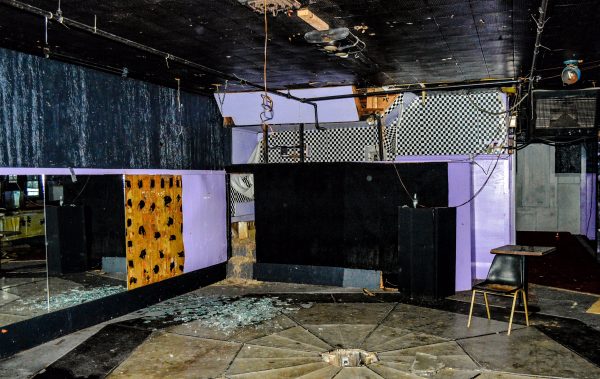
The Courier worked his route during the day, but at night he could be found at the Tin Pan Alley in downtown Wheeling. The home of the former Zeller’s Steakhouse owned by renowned Mob boss Bill Lias was transformed, Kennen & Kennen’s Missy Ashmore confirmed, by the mid-1970s into a floor-by-floor department store of live and DJ-ed music. And the crowds were consistently huge.
Country, rock, and disco were the primary musical themes, and the Courier was initially a first-time patron in 1977 who quickly became the bar manager just two years later. He liked the scene, loved the ladies, and enjoyed experimenting with drugs so much that he later became addicted to cocaine.
But at the time he first walked into the Tin Pan Alley, he was in his mid-20s and single, and soon he would be earning thousands in unreported cash. And it all started because of a one-beer agreement with his buddies.
“That first night I didn’t want to go when some of my friends in Marshall County said that’s where they wanted to go, but I’m glad I went because the place was a lot of fun. I found myself going back a few days a week after that first visit,” he explained. “I met this person and that person, and then I met the owner, and we got along.
“A few weeks after I started hanging out there, the owner fired Bob Dorris [ed. note: See comment from Bob Dorris below] as the DJ and told me he wanted me to do it. I told him that I didn’t know anything about being a DJ, but he just told me to play the same music. He looked at me and said, ‘How hard can it be?’ So I learned how to do it and made some very interesting friends from that point on.”
Many of those acquaintances introduced the Courier to a career in cocaine in a city of 48,000 residents. Interstate 70 was finally finished, the wounds from the death of a proposed downtown mall were still fresh, and an Elby’s Family Restaurant was close by for sure. The landscape of downtown Wheeling was changing in the mid-1970s with the construction and opening of the Wheeling Civic Center as well as the building of Wesbanco Bank’s mirror-windowed headquarters at 14th and Market streets just a few steps from the Club Tower strip club. Tin Pan Alley was tucked away close by too, within an alley intersection that’s between Main and Market streets near the home of Ogden Publishing and the nudie book store.

Drug sales in other local bars proved just as lucrative as the Tin Pan, the Courier reported, and the Pirate’s Cove, the Eagle II, the Whistle Stop, Elbow Room, College Inn, and Mac’s on Washington Avenue usually featured more-than-willing buyers bellied up hoping to experience the roller-coaster buzz that involved gulping the pills first, chugging the alcohol second, and then using the coke as “the icing on the cake.”
“Sometimes a dealer would pay off a local bar owner or the bartender so they could sell out of their place when their own houses or apartments got too hot,” he said. “The dealer would set up at a table in the bar, usually in a corner somewhere, and one buyer after another would flow in.
“The bar owner or bartender didn’t care because those people always bought a beer so they wouldn’t be suspicious, and they always left a good tip,” the Courier continued. “I didn’t have to do things like that, but some of the guys that were buying from me had to.”
The client base was diverse – judges, board presidents, preachers, teachers, moms, dads, and cheaters handed over cash in exchange for the chaos, and passing out and having to be carried to a cab wasn’t a criminal offense a few decades ago.
“Back in those days no one really cared about that stuff, and that’s why I never really thought what I was doing during the day or night was wrong. I never really considered myself a lawbreaker,” Courier said. “It’s not like it is today. No one stood on corners waiting for cars to pull up. It was very discreet back then, and the rules were easy – stay away from the very young and the very poor. That was because the very young and the very poor were usually the first ones the police could get to talk.
“When I was the bar manager, I didn’t care what the customers were doing in the restrooms unless they were smoking a joint. Let’s face it. Cocaine doesn’t stink up the place when you’re snorting or bumping, but light up a joint, and the entire freakin’ bar knows,” he continued. “And we had a lot of cops who would come in. We catered to them, and smoking weed in the bathroom just wasn’t smart. Not at all.
“That atmosphere wasn’t just inside the Tin Pan Alley. It was everywhere, especially at the Pirate’s Cove in Center Wheeling and a lot of other places around town. And remember, there was no such thing as DUIs back in those days. People did what they did, drank what they drank, and smoked or snorted whatever, and still went from one place to the next like it was nothing.”
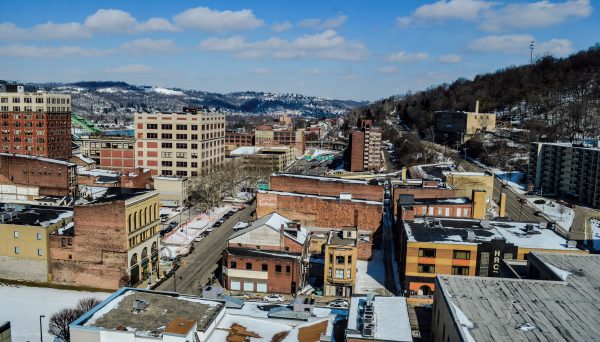
The drugs the Courier delivered, though, didn’t flow from the Hankish organization, and that’s because his supplier felt that “No Legs” stomped on coke far too much, and his prices for marijuana and the pills were far too high. Hankish ruled the roost soon after surviving an explosive assassination attempt in January 1964, and those who wanted to get in on the action had to pay him.
“By the 1970s Hankish was very mobile. He was getting around pretty well by then, and he was in control,” Burgoyne reported. “If someone wanted to get into the drugs, the prostitutes, or the stolen-car business, most of them had to take care of him if they wanted to exist, or bad things usually took place.”
Donnie Clark, though, created his own network. The Moundsville native often would drive to Miami to buy Cuban cocaine, and his pills and pot came from suppliers from Ohio, West Virginia, and Pennsylvania.
Mannitol or baby laxative, the Courier admitted, was what he used to “fill” the cocaine, and the weed from Mexico often arrived sealed in coffee cans.
“I wasn’t sure where the pot was coming from back then, but when I had to use a can opener to get to it, I knew it came from a country where the coffee company was involved in the network because of those sealed cans. I thought it had to be Mexico because all we had to do was microwave the bags for 60 seconds, and, poof, we had nothing but beautiful buds,” he said. “And as far as the Mannitol and the baby lax, we had to do that with the cocaine because the shit Donnie was getting in was so potent it would have killed people if we didn’t.
“That’s what I wanted to believe anyway. I tried it uncut a few times, and it was some serious shit. I think I did one line, and it kept me up all night long. I couldn’t imagine trying to do the amount that was normal then. I really think people would have died.”
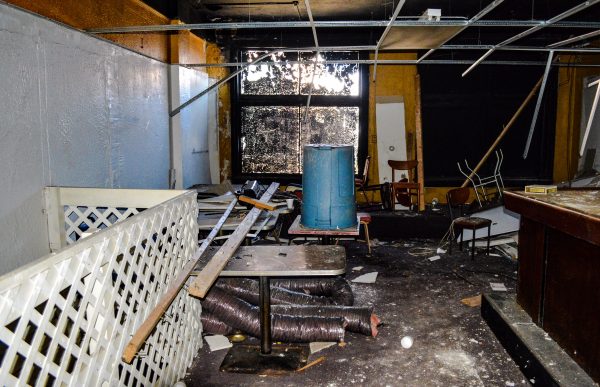
Clark’s network employed the weigh masters, the runners, the bookkeepers, and the attractive “Bag Lady,” who joined the Courier in operating in the public’s view instead of hiding away as Clark and the others did. The weigh masters measured, the runners delivered deals, and the bookkeepers recorded the cash. Once transactions were completed, the “Bag Lady” went to the bank.
“I was the trusted guy because I took care of business at the Tin Pan, so I went to the bankers, the businessmen, and the lawyers. I was the guy that people wanted to do business with because I pulled no punches or pranks. They got what they wanted for the price they expected,” he said. “When I agreed to start doing it for Donnie, he promised me bail and an attorney if I ever got in any trouble and didn’t sell him out along the way. I put on a suit and tie, and I went from place to place and did what I did because I trusted him.
“Each week I probably sold three pounds of marijuana and three to five ounces of coke. It fluctuated according to the time of year, but there was a lot of money to be made,” he said. “After a little while the weed I was dealing was grown outside of Hundred, W.Va., instead of coming in from Mexico, and it was just as potent as the weed is today. We had a lot of fun when we were naming the bud, too. Columbia Gold, Red Bud — it was some pretty great shit, and people loved it, and they had no idea it was grown just two counties to the south.”
In his dealing days, he charged $250 for an “Eight Ball” (or a half-ounce of cocaine), and the pricing of the pills and weed depended on the market. The powder was snorted wherever, and users used whatever bill or straw they could muster. It was popular with the ladies at the time to grow their pinky nails a little longer than usual so they could “dip and bump” whenever the opportunity arose.
“When I was working at the Tin Pan, I could always tell who was doing what – the pills, the pot, or the coke,” the Courier said. “You could tell by their eyes, or you tell what guys had the coke because they would constantly tap their pocket to make sure their gold was still in there.
“Sales were going so well at one point that a department store owner who was one of my customers started asking if I would deal for him if he fronted the purchase of a kilo or two of coke. He asked me about how much he could make, and I explained to him that a kilo of coke at the time was around $30,000 but that he could triple his money pretty easily. I guess his store wasn’t doing too well.
“But I turned him down on his offer because I had my gig. I was working for Donnie during the day and at the Tin Pan at night. I spent every dollar I made, and I lived the life,” he said. “I knew the guy’s reasons for wanting to get into the coke business, but that’s never what it was about for me. I didn’t want the weight of a business on my shoulders. I just wanted to deal the drugs, make the money, and drink the beers and peppermint schnapps just like everyone else.”
His tenure didn’t last long at the Tin Pan Alley although the Coynes convinced him to put the bar’s liquor license in his name. The property owners, Jim and Bernie Coyne, retained the poker-machine revenue and created an atmosphere still recalled as legendary today by natives and out-of-towners alike. One brother was a bar owner in Bridgeport, and the other was a stockbroker, and the partners enjoyed the profits from steady weeknights and wall-to-wall weekends.
But the money, the Courier said, eventually tore the two apart and forced them to file for federal bankruptcy protection.
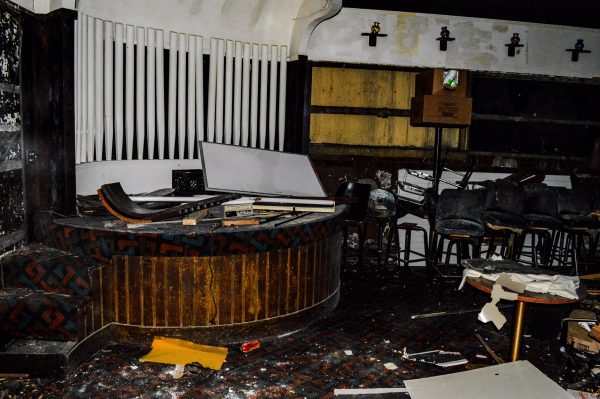
“That partnership got to be a real bad situation because of the amount of money that was flowing through the place,” he explained. “There were no credit card payments, and the debit card didn’t exist, so everything would be cash-money. And then one night it would be one of the brothers calling me to ask where the bank bags were, and the next night it would be the other one.
“I just took care of business, and it took care of me. I know I got paid, and so did the other staff we had when I was there. What those guys were doing was on them,” the Courier continued. “And then I was the one who got investigated when their issues caused them to file bankruptcy because they wouldn’t own up to what they were doing. They blamed me, but what they didn’t know is that I never put the money I made in the bank. When they checked my banking records, they found nothing close to proving I was taking anything, let alone getting paid for the bar or the drugs I was selling.”
The Courier surrendered his business route too, and he and his camera bag moved to Pittsburgh in 1980 to get away from Wheeling. He remained in contact with Clark, but not with the Coynes beyond their attempt to draw him back to Tin Pan Alley for the re-organization process. Once he returned to the Valley after a year or so in the Steel City though, he reconnected with Clark and with the coke, but the boycott against Hankish and his products had been lifted.
“In the beginning Donnie always told me he wouldn’t deal with anyone related to Hankish because his drugs were shit,” the Courier recalled. “He always said Hankish’s coke had too much filler, his weed was rag and worthless, and that he charged way too much for the pills. So he went into business himself because he figured how to get better shit, and we did all right because there were a lot of people we sold to who were happy that it wasn’t connected to Hankish.
“Everyone knew Hankish was in the federal spotlight, and everyone knew that the drugs he was selling weren’t the best, but he’d still get the cash because of his name and his network, but Donnie told me the atmosphere was changing. Some of his connections went away, and that’s when he had to start going to someone in Hankish’s organization somewhere around 1984 to get the loads of coke he needed.”
Burgoyne knew of Clark in the 1970s, but it was only after the FBI was permitted to enforce federal laws concerning cocaine when the agent and the criminal came face-to-face.
“We had an informant that knew Donnie pretty well, so we told the informant to tell him that there was a kilo of coke in Miami that he could buy for only $20,000, and back in those days that was a really good deal on that much cocaine,” Burgoyne explained. “Clark jumped at the chance because he could make a lot more money on a deal like that.
“Donnie jumped into his car and drove straight to Miami and picked up the kilo from another guy we had down there, and he paid the $20,000 in cash, turned around, and drove all the way back,” he continued. “Clark was told to meet the buyer in the parking lot of the Elby’s on National Road. The two met at the front counter, sat down and had a cup of coffee, and then went out in the lot to make the exchange.
“If he wasn’t set up, Donnie would have made $10,000 in two days, but as soon as he opened his trunk, something like eight agents and cops rushed him and immediately cuffed him and took him into custody. I was with him for four straight days after that trying to break him down. We knew he was connected to Hankish, and we knew he didn’t want to sit in prison for 25 years because that’s how long he was looking at.”
Clark believed, the Courier told me, that Hankish had something to do with his arrest because of his years of defiance. So on that fourth day, Clark decided to pay him back.

“Donnie Clark was a likeable guy, but he was a tough guy, and he drank a fifth of whiskey every single day. He would be straight sipping on that bottle right after breakfast and that bottle was with him until it was gone,” Burgoyne recalled. “Finally, Clark decided to start talking to me, and he told us everything we needed to know about Hankish and his operations. We had a lot of information on Paul already, but after Clark told us everything he knew, we were really confident in our case against Hankish. He confirmed a lot of what other informants were telling us.”
So in July 1990, Clark testified against Hankish during the mobster’s federal racketeering trial in Wheeling. Clark told the judge and jury that it was “No Legs” who supplied him the drugs he trafficked throughout the Upper Ohio Valley, and in exchange for his cooperation Clark and his wife were granted entry into the federal government’s Witness Protection Program.
“They went from Wisconsin to Arizona,” the Courier said. “The feds told them to just disappear, but that wasn’t Donnie. They were gone for a while, but this was his home, for better or worse. Plus, he knew Hankish went to prison and that most of his guys had faded away.
“So they broke out of the protection program after a few years and came home, and then he and his wife died pretty close to each other a few years after that,” he said. “Donnie died in November 2001, but he was still using, and he was still drinking when they came home. I guess it was only a matter of time until his body just gave out on him, but I’ve always wondered if their deaths were somehow connected to his testimony that damned Hankish to the prison.”
“The Wheeling Mob” series on Weelunk attracted the Courier’s attention because the stories hit very close to home. He’d been waiting, he admitted, to finally see his name, and yet he didn’t reach out to me. I reached out to him because I discovered his story was important to include when telling the tale of Wheeling’s infamous underground.
“As soon as the first story came out I didn’t know what to think or where it was going to go,” he said. “The stories have all been so factual from what I remember that I was nervous. I mean, people know who I am. Of course they do. I was involved. I was at the Tin Pan. I was in their offices opening my camera bag and taking their money.
“That was a long time ago. That was 30 years or so ago, and it was a a freakin’ riot,” the Courier added. “To be completely honest, I’m just glad I survived.”
